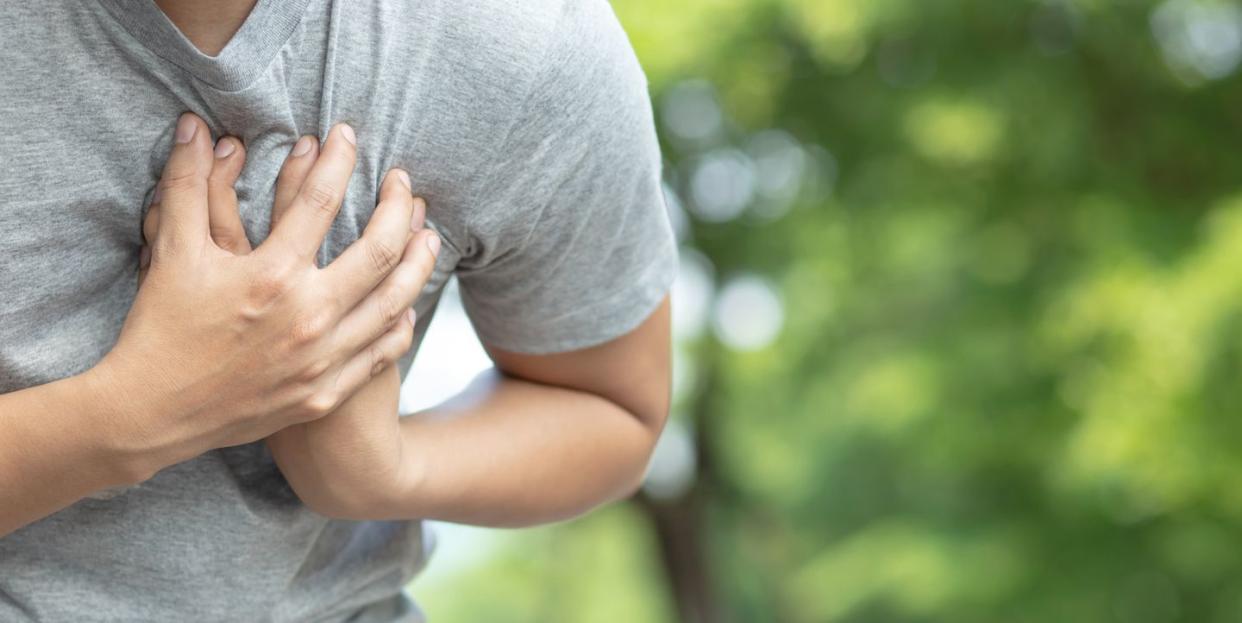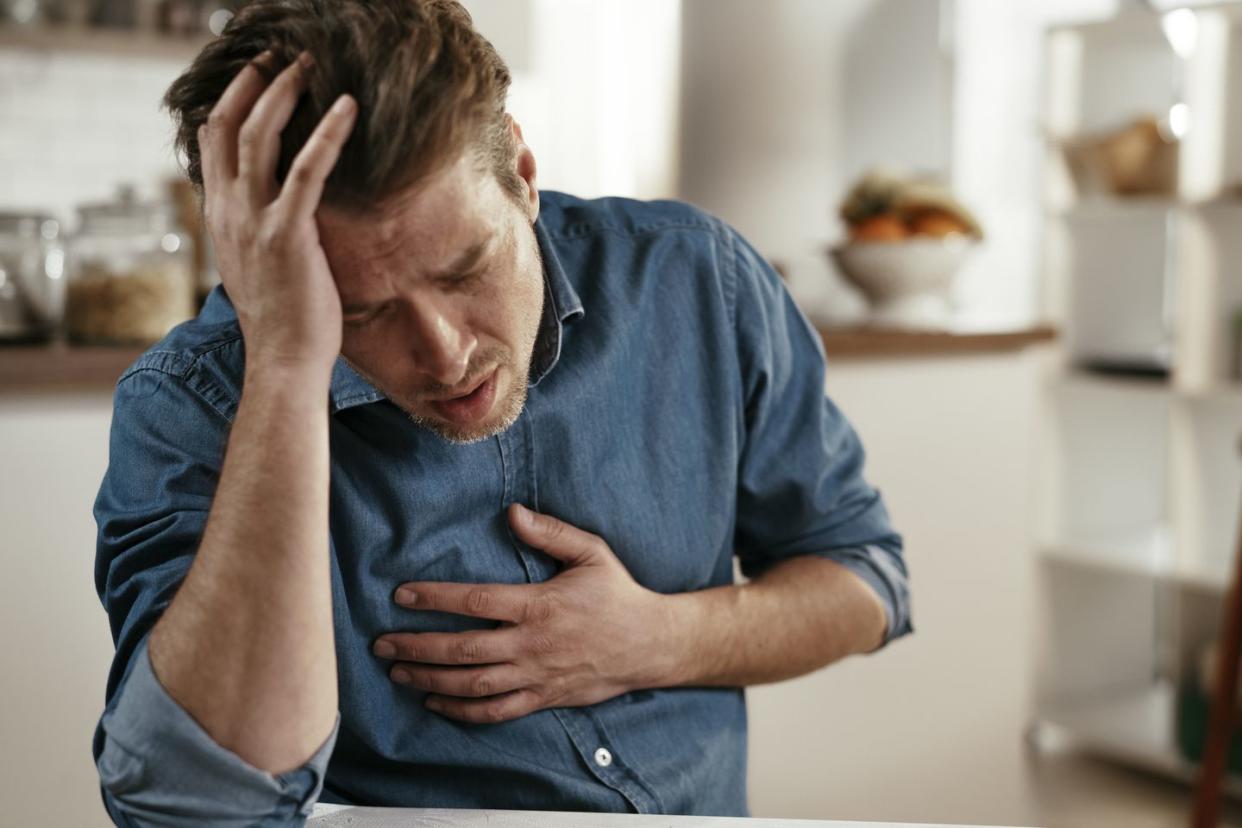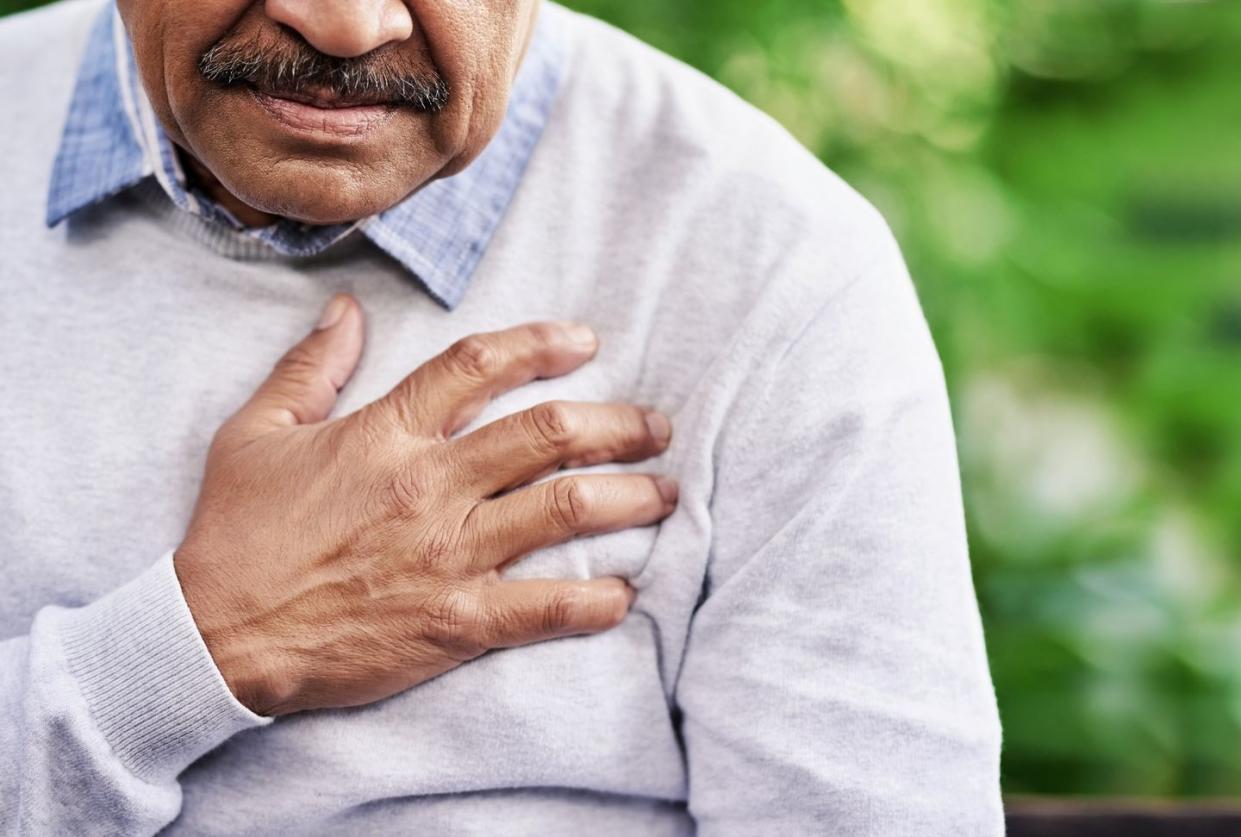HEART PALPITATIONS, trouble breathing, dizziness, nausea, and a feeling of impending doom. You probably think of these symptoms as signs of a heart attack, and they definitely are. But, they can also signal a panic attack.
So, how can you tell exactly which condition you’re experiencing? Doctors say it can be difficult, especially if you don’t have existing heart problems or a history of panic attacks.
“This can be very challenging for patients to decipher,” says , a cardiologist atin Atlanta. “Some of the symptoms can be very, very similar.”
When you’re having any kind of chest pain, trouble breathing, or other alarming symptoms, it’s always good to err on the side of caution and head to the emergency room. Physicians there will evaluate and treat you, and might refer you to a cardiologist.
A racing heart—which can be a sign of a panic attack or cardiac episode—is a common reason someone seeks medical attention, says , an interventional cardiologist at . Doctors usually consider a panic attack a "diagnosis of exclusion," meaning they conduct tests to rule out a heart problem first before suggesting that anxiety is causing your symptoms.
Sometimes people with a history of panic attacks or an anxiety disorder diagnosis might see their doctor about dizziness or heart palpitations and find out they have a heart condition, such as an arrhythmia, Dr. Flaherty says.
Both heart attacks and panic attacks have several symptoms in common, but also some differences. They’re both serious conditions that require their own treatments. Here's what to know about each.
What’s the Difference Between a Heart Attack and a Panic Attack?
Different kinds of heart problems, like a heart attack and cardiac arrest, can cause similar symptoms, like heart palpitations, dizziness, nausea, and chest pain. But these conditions aren’t the same.
Aoccurs when blood flow to the heart muscle is blocked or restricted, usually because an artery has a buildup of plaque. Heart attacks can be sudden, but they can also start with mild pain or discomfort in the chest that gradually worsens. The symptoms might also come and go before you actually have a full-on heart attack.
happens when the heart’s electrical system malfunctions and the heart’s pumping stops. It can be caused by an arrhythmia, which is an irregular heart rhythm, or other conditions.
aren’t heart-related at all. They’re sudden episodes, often in response to a specific stressful situation, where you feel intense fear and experience physical symptoms. They can also occur out of nowhere. In a panic attack, your body may go into fight or flight mode in response to stress, which speeds up your heart rate and breathing, which might feel like a heart attack.
According to the , panic attacks don’t pose an immediate danger, but a heart attack is life-threatening and requires swift medical attention.
Many of the Signs of a Heart Attack and Panic Attack Overlap
It’s easy to confuse a panic attack and a heart attack because the two conditions share many of the same symptoms, including:
Chest pain
Pounding or racing heart
Lightheadedness
Dizziness
Sweating
Shortness of breath
Nausea
Sense of impending doom
“Probably the most common [overlapping symptom] that comes up is either passing out or feeling like you might,” Dr. Flaherty says. “Some of it has to do with changes in the heart rate, and some of it has to do with changes in blood pressure.”
Panic attacks also often bring a sudden feeling of intense anxiety or a fear of a loss of control or death, along with trembling, tingling, numbness, hyperventilating, and feeling detached, according to the .
What’s the Difference Between a Panic Attack and Heart Attack
Even though the two conditions share several symptoms, they don’t always feel the same. Here’s how heart attacks and panic attacks differ.
What the Chest Pain Feels Like
Chest pain is common with both panic attacks and heart attacks. But with a heart attack, Dr. Klein says people are more likely to report chest tightness, pressure, or squeezing. Panic attacks can bring chest pain, along with a sense of impending doom and a racing heart.
Where You Feel the Pain
Pain or discomfort in the jaw, neck, arms, back, or shoulders is also more common with a heart attack. The pain is usually concentrated in the chest with a panic attack.
When You Experience Symptoms
Panic attacks might result from an emotionally stressful situation, but not always. Heart attacks sometimes occur after physical exertion, like walking up several flights of stairs, which is uncommon with panic attacks, according to the .
When You’re Sweating A Lot
Intense sweating is often a sign of a heart attack. “When I see someone who’s breaking out in a sweat, and it’s not 100 degrees in the room, that’s usually a sign that your body is trying to send you an alarm, especially if there’s shortness of breath,” Dr. Klein says.
How Long Symptoms Last
You might have panic attack symptoms for a or so, and once they subside, you’ll usually feel better. Heart attack symptoms don’t stop. They might come and go or be more or less severe over several hours or a couple of days.
How Stress and Anxiety Affect Your Heart
Stress can take a toll on your body, including your heart. It can raise your blood pressure, and that might cause shortness of breath and chest pain. A panic attack usually won’t cause a heart attack, but it is possible, according to the .and high blood pressure can increase your risk for a heart attack or stroke.
, also known as broken heart syndrome or takotsubo syndrome, is a heart condition that’s directly related to stress. It happens when someone experiences a sudden intense stressor that causes abrupt changes in the heart and weakens the heart muscle. “It can occur after a traumatic event, like the loss of a loved one,” Dr. Klein says.
Should You Seek Medical Attention for Your Symptoms?
Any time you’re having chest pain and shortness of breath, it’s a good idea to get it checked out. A routine heart exam might include performing an EKG and blood tests to check forand can rule out a heart problem.
“We’ll usually use anxiety as a diagnosis of exclusion once we’ve ruled everything else out,” Dr. Flaherty says. “We’ll find out that there’s nothing going on from a cardiology perspective." That, then, points to panic attacks.
Establishing a relationship with a primary care physician is also vital for your overall health, Dr. Klein says. And if you have anxiety and stress and experience panic attacks, see a mental health professional.
“You have to take care of both things,” he says. “We can take care of the body side, but you have to also take care of the mental side. It's just as important to improve your quality of life and improve your longevity.”
You Might Also Like
The 16 Best Men's Gifts From Oprah's Favorite Things 2022
The Best Hair Growth Shampoos for Men to Buy Now
25 Vegetables That Are Surprising Sources of Protein
Source: Read Full Article





